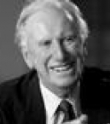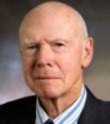Expert Panel-Fellows of the AIIA
|
 Hilary Charlesworth FAIIA-Professor, ANU; Director of Centre for International Governance and Justice Hilary Charlesworth FAIIA-Professor, ANU; Director of Centre for International Governance and Justice |
 Jocelyn Chey AM FAIIA-Visiting Professor, University of Sydney; former Consul-General in Hong Kong Jocelyn Chey AM FAIIA-Visiting Professor, University of Sydney; former Consul-General in Hong Kong |
 James Cotton FAIIA-Emeritus Professor at the University of NSW James Cotton FAIIA-Emeritus Professor at the University of NSW |
 Rawdon Dalrymple AO FAIIA-Former Visiting Professor, University of Sydney; Chairman of ASEAN Focus Group Ltd Rawdon Dalrymple AO FAIIA-Former Visiting Professor, University of Sydney; Chairman of ASEAN Focus Group Ltd |
 Graeme Dobell FAIIA-Journalist Fellow, Australian Strategic Policy Institute Graeme Dobell FAIIA-Journalist Fellow, Australian Strategic Policy Institute |
 Erika Feller FAIIA-Former UNHCR Assistant High Commissioner for Protection Erika Feller FAIIA-Former UNHCR Assistant High Commissioner for Protection |
 Janet Hunt FAIIA-Former Head of the Australian Council for Overseas Aid Janet Hunt FAIIA-Former Head of the Australian Council for Overseas Aid |
 James Ingram AO FAIIA-Former Diplomat and Head of the UN World Food Program James Ingram AO FAIIA-Former Diplomat and Head of the UN World Food Program |
 John McCarthy AO FAIIA-Former Ambassador to Japan, Indonesia, the United States, Thailand, Mexico and Vietnam John McCarthy AO FAIIA-Former Ambassador to Japan, Indonesia, the United States, Thailand, Mexico and Vietnam |
 Robert O’Neill FAIIA– Former Chichele Professor of the History of War, Oxford University Robert O’Neill FAIIA– Former Chichele Professor of the History of War, Oxford University |
 Garry Woodard FAIIA-Former Diplomat and Senior Fellow, University of Melbourne Garry Woodard FAIIA-Former Diplomat and Senior Fellow, University of Melbourne |
 Richard Woolcott FAIIA-Former Secretary of the Department of Foreign Affairs and Trade Richard Woolcott FAIIA-Former Secretary of the Department of Foreign Affairs and Trade |
Question: What are the implications of events in the Ukraine? Should we be worried?

Graeme Dobell FAIIA |
Hear the faint Crimean cadences of The Charge of the Light Brigade. Europe is back doing the geopolitics of its great grandparents. Geography defines and predisposes while power is the muscle, but leaders still decide. And this is all about Tzar Putin – in a bad way. |

Robert O’Neill FAIIA |
One dimension of the Ukraine-Russia crisis that needs attention is the effect it will have on attitudes in other eastern European nations towards Russia.The Western part of Ukraine has many people who have been, or are still, essentially Polish in terms of their nationality and social linkages. The Polish government must be very concerned about what could take place in Ukraine in terms of the extension of Russian authority.There have been centuries of warfare in this part of Europe, in which Russia was the major participant. Sensitivities to Russian dominance are high in the neighbouring countries, including the Baltic states. This could work in favour of Western European influence and standing in Russia’s border lands. And it could also exacerbate tensions in relations between Russia and the european Union – particularly as it is the Russians who have their hands on the gas valves for central and western Europe. |

Erika Feller FAIIA |
I should think we should be concerned. Developments there have been described as the most serious security crisis for Europe since the breakup of Yugoslavia. Many commentators are looking at the implications not only for security but also for the economies of countries dependent to significant degrees on Russian energy reserves. Participation in the para- Olympics in Sochi has become mired in the developments. The Security Council is engaged. It called for unity and territorial sovereignty to be respected, but at the same time for an inclusive dialogue recognizing the diversity of the Ukrainian society. A diplomatic solution will be a challenge against the backdrop of political and economic woes in Russia and the entrenched East/west divide in Ukraine . It would be interesting to have views on an alternative suggestion aired recently on the BBC, reportedly from former Foreign Secretary Lord Owen, to the effect that Russia should negotiate with Ukraine a lease on Crimea, somewhat analogous to the US lease on Guantanamo! |

James Cotton FAIIA |
There can be no stable security or economic arrangements in Europe without the recognition of Russia’s place as a major power. The Russian political system – and the governments that it produces – have to be taken as they are rather than as others would like them to be. Moreover, Russia and its immediate neighbours are still in the throes of the post-imperial moment. The issues thrown up at such times sometimes take more than a generation to resolve. One has only to think of the very difficult India-Pakistan relationship of the past 60 years, and of the fact that neither their territorial claims nor even their national aspirations have been satisfactorily resolved. In the force field of such tensions, outside actors are almost bound to exacerbate suspicions and enmities.
In retrospect, at a time when sharp reductions in American military capability are in process and more are in prospect, even the mere consideration of the exertion of military pressure on Russia will probably be seen to have been quixotic. If a decade of large-scale military intervention in Afghanistan against a militarily inconsiderable foe failed to produce a satisfactory result, the scope for disaster and bankruptcy occasioned by an Eastern European intervention must be judged vast by comparison. Neither the EU nor NATO were wise to be seen to be encouraging the unsustainable notion that their bounds and bounty could be extended to the Ukraine or Georgia.
Looking ahead, the greatest hope for European stability lies in the positive evolution of a post-Putin regime. Actions taken to isolate and condemn Russia under its current dispensation will only feed those internal forces least inclined to accommodation with Europe. And Russia’s internal evolution should be the principal concern of external powers. At this time we should dust of our copies of George F Kennan – no American understood Russia better – to obtain an appropriately sobering perspective.
|

James Ingram AO FAIIA
|
Events in the Ukraine have important implications for long-run global stability. We should be concerned but not overly worried. The United States and the Europeans helped to bring about the overthrow of Yanukovych and the installation of a government to their liking. It is not surprising that Russia has reacted strongly. The complex history of Ukraine’s relationship with Russia and the emotional attachment of its majority ethnic Russian population in eastern regions of the country to Russia, seen in the context of Putin’s understandable commitment to the restoration of Russian influence and power throughout the former USSR, made that likely and should have been anticipated by the United States. From the Russian perspective, Western meddling in Kiev was provocative in the light of the expansion of NATO ever closer to its borders, the construction of a controversial NATO anti-missile defence system and similar developments since the end of the Cold War.
There are powerful forces in the US Congress and perhaps in the administration who seem incapable of recognising that Russia is a great power and aspires to be accepted as such by the United States, that it is not under its tutelage and that its right to protect its interests is no less than that of the Americans. In considering his response to the Ukraine crisis President Obama needs to keep in mind that the long-run challenge to US hegemony will come from China not Russia. Wise American leadership would recognise that it is essential for the United States to avoid over-reaction to differences with Russia over issues of vital importance to the former but of secondary concern to the latter. Looking ahead, the long-term strategic situation of the United States is best served by fostering good relations with Russia. Fortunately, Angela Merkel not Obama is the key Western player in negotiations with Putin. She and he are both fluent in each other’s languages; and Putin respects Merkel who with her cool, patient handling of the European debt crisis has shown she has the qualities needed for the resolution of the Ukraine crisis. Moreover Germany has a bigger stake in a quick and mutually satisfactory resolution than the USA.
Australia could perhaps best use its influence to persuade Washington to mute its rhetoric and focus on a diplomatic solution, albeit a compromise one which delivers some of what Putin seeks; and to the extent feasible, play a conciliatory role in the Security Council in the event of further discussions there. That may be a step too far for Canberra. If, as is to be expected, our government joins with the United States and Europe and imposes sanctions Moscow will in no way be surprised. However it would be foolish indeed for Australia to take the initiative to try to exclude Russia from preparations for, or participation in, the Brisbane G20 meeting. In that case there could be some damage to our relations. For example we have been seeking to expand agricultural exports to Russia and our efforts would certainly be set back. |

Garry Woodard FAIIA |
As the Chinese fathered non-interference, can talk to Putin, and are a big economic player in Ukraine, would not our Foreign Minister be more profitably occupied in Beijing?
|
[really_simple_share]
Past Questions
February 28, 2014
Do you support the Australia Network?
















